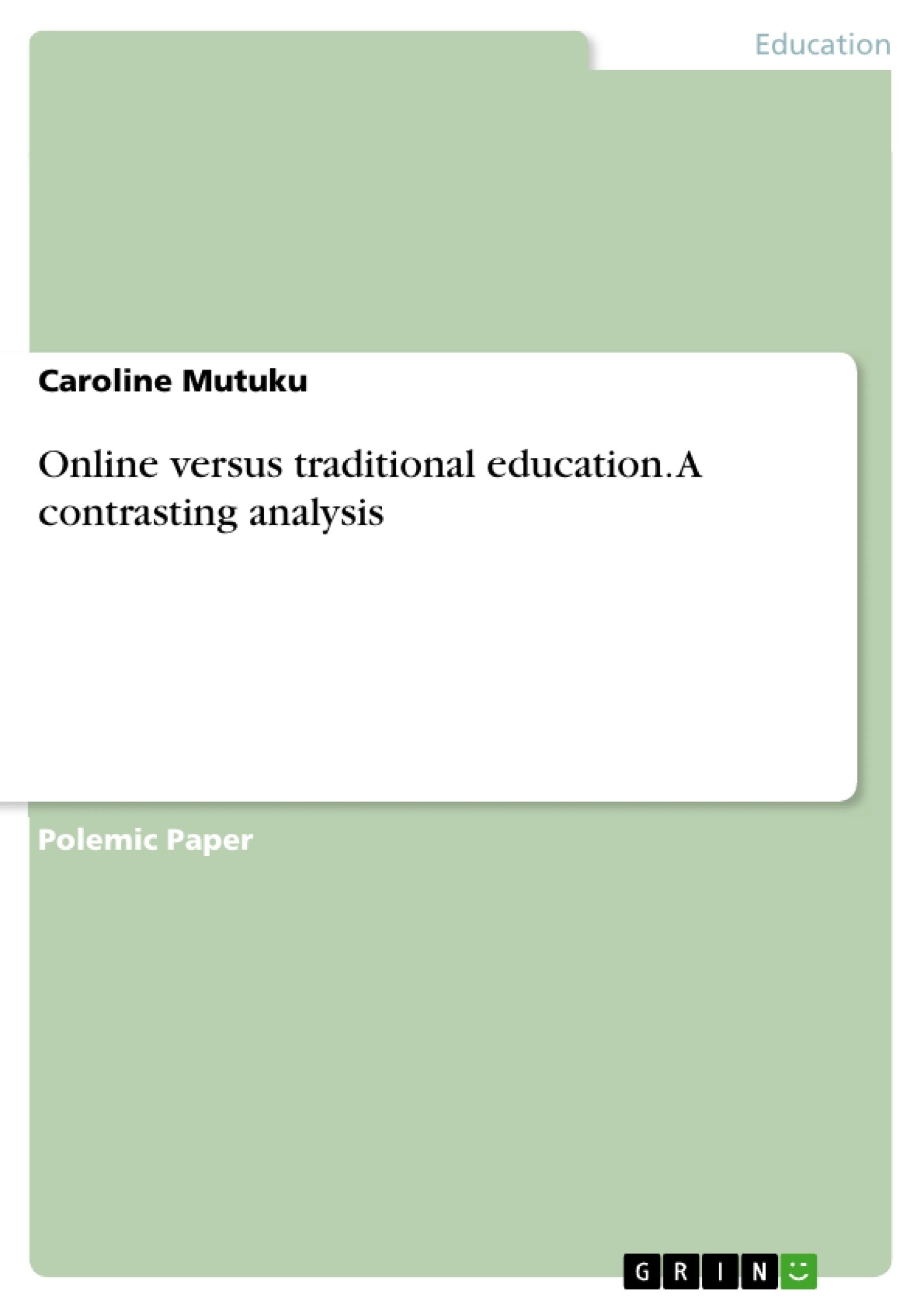Educational transition has led to the development of new approaches for the 21st Century education. The emergence of online learning in the 1990s seems to have changed the relevance of traditional education. This can be attributed to the current social change and technological development. Ordinarily, the principal reason for learning is to acquire intellectual knowledge, but the element of usefulness of the acquired knowledge has become the key determinant of the mode of learning.
Traditional and online education exhibits varied characteristics, which are useful in elucidating their similarities and differences. Concisely, characteristics of online education imply that learners assume full responsibility in the learning process. On the other hand, traditional education is characterized with shared responsibility between learners and instructors.
Similarities between online and traditional education can be outlined with regard to reference materials, assignments, exams and the role of instructors in the learning process. All curricula involve assignments and exams for evaluating the learners’ understanding of coursework and reference materials; either printed or electronic are intended to be used by students to extent their knowledge on different concepts.
On the other hand, the two systems manifest differences in flexibility, interaction, communication, learning mode and skills development. Traditional education uses the classroom setup, whereas online learning is computer-based.
In conclusion, traditional education holds high values over online education, especially with regard to the equivalency theory. Its high value is attributable to the face-to-face aspect, which enhances skills development among learners.
Table of Contents
- Executive Summary
- Introduction
- Online Education versus Traditional Education
- Similarities and Differences between Traditional and Online Education
- Value of Traditional Education Compared to Online Education
- Conclusion
- References
Objectives and Key Themes
This research paper aims to provide an overview of the similarities and differences between online and traditional education. It explores the changing landscape of education in the 21st century, examining the impact of technological advancements on learning.
- The evolution of education systems in the digital age
- Similarities and differences between online and traditional education
- The value of traditional education compared to online education
- The role of technology in enhancing learning
- The importance of shared responsibility in the learning process
Chapter Summaries
- Executive Summary: This section introduces the topic of online education versus traditional education, highlighting the impact of technological advancements on education in the 21st century. It points out the shift in emphasis towards knowledge acquisition and its usefulness.
- Introduction: This chapter outlines the evolution of education from the 19th to the 21st century, emphasizing the role of technology in shaping contemporary learning systems. It discusses the increasing popularity of online education and highlights the similarities and differences between online and traditional education.
- Online Education versus Traditional Education: This chapter explores the key characteristics of both online and traditional education, focusing on the similarities and differences between the two systems. The discussion centers around the roles of learners and instructors, curriculum design, learning modes, and skill development.
- Similarities and Differences between Traditional and Online Education: This section delves into the commonalities between online and traditional education, emphasizing the importance of reference materials, assignments, exams, and the role of instructors. It then outlines the differences in flexibility, interaction, communication, learning mode, and skills development.
- Value of Traditional Education Compared to Online Education: This section argues that traditional education holds greater value than online education, citing the importance of face-to-face interaction and shared responsibility in enhancing skills development.
Keywords
This research paper explores the key concepts of online education, traditional education, technological advancements, learning modes, curriculum design, shared responsibility, skills development, face-to-face interaction, and the evolving landscape of education in the 21st century.
- Arbeit zitieren
- Caroline Mutuku (Autor:in), 2018, Online versus traditional education. A contrasting analysis, München, GRIN Verlag, https://www.grin.com/document/429558



